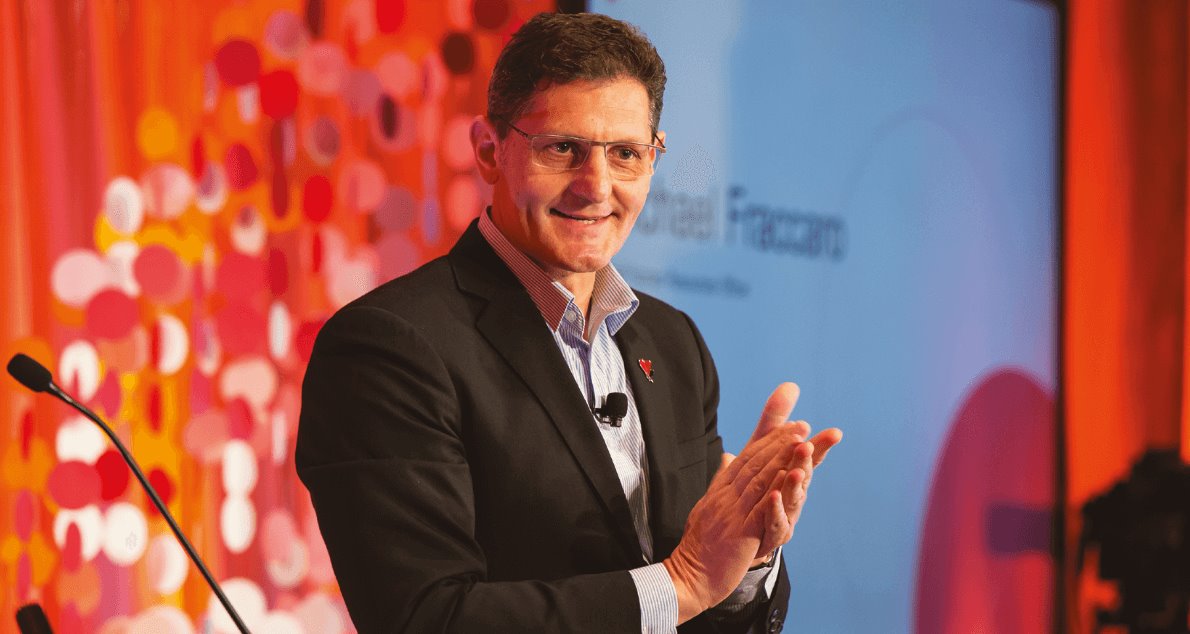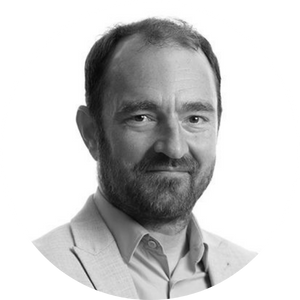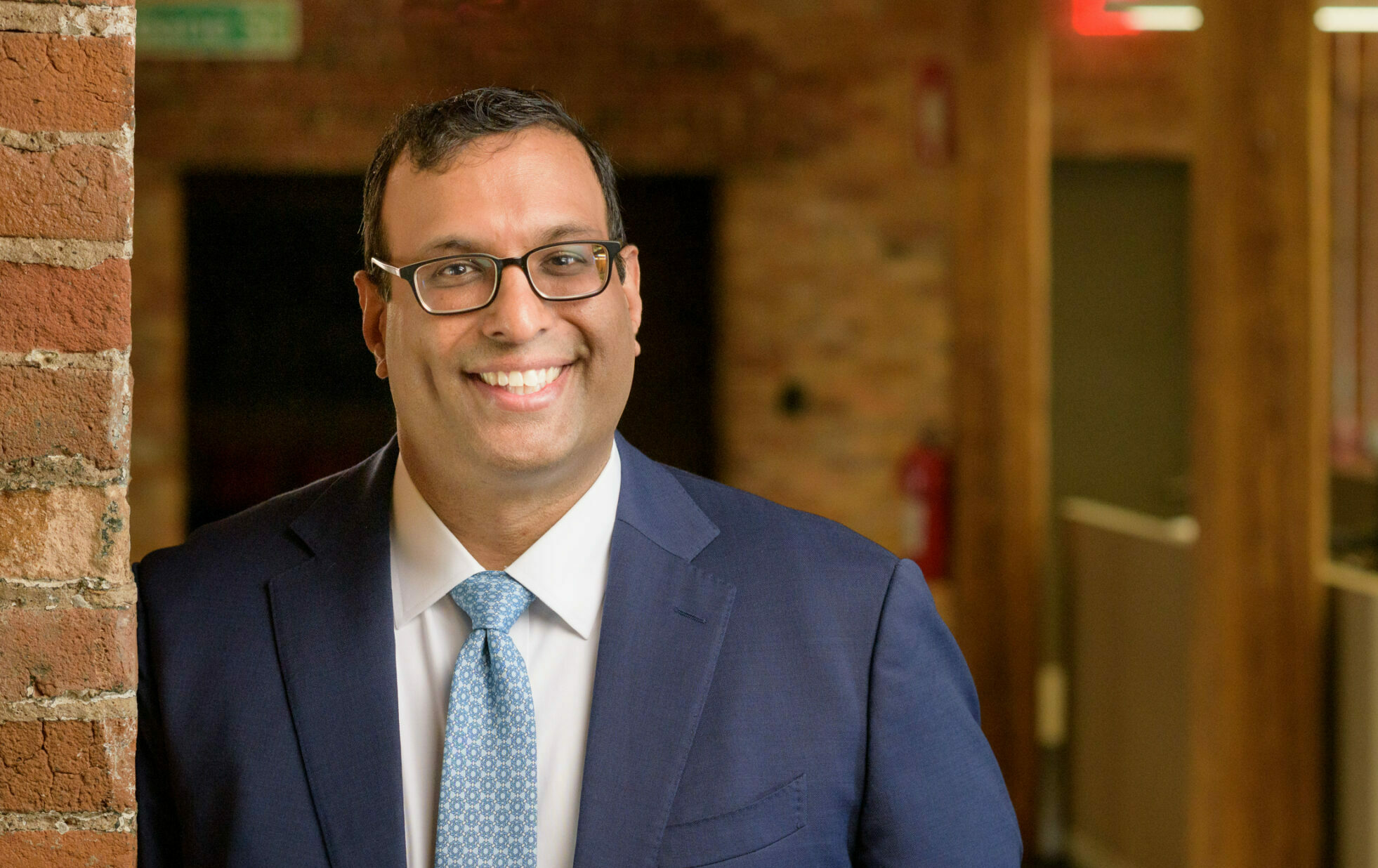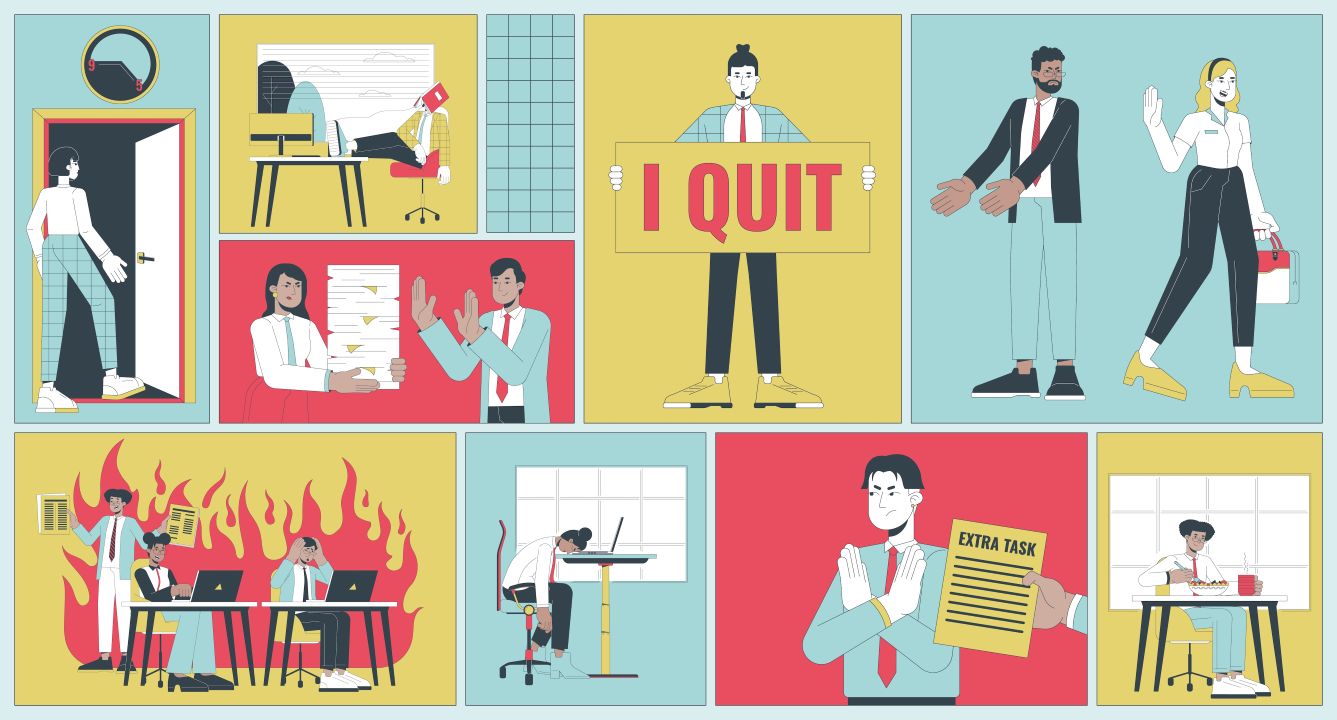Mastercard’s Michael Fraccaro puts people at the center of business strategy.
It is never too late for a life lesson, even when you are a schoolteacher. Michael Fraccaro was teaching at a Sydney high school when one of his senior colleagues asked whether he had ever considered an alternative to education.
“I could have taken her question in one of two ways!” he jokes. “One was that I was a pretty lousy teacher and I should try something different. But it was really that she saw someone with potential, and that teaching could be a ladder elsewhere. She was a true mentor to me.”
Fraccaro, now chief people officer at Mastercard, almost missed that ladder at an early age. “Like many young boys, I dreamed of following in my father’s footsteps,” Fraccaro tells Dialogue. “I asked my dad whether I could come to work with him. He knew working in a factory wouldn’t fit me, but allowed me to do it anyway.” He credits his father with deliberately teaching his son through exposure.
As it turns out, his schooldays mentor was right: teaching was a stepping stone to bringing the human touch to the corporate world. “My idea was to go to work in the private sector, get the experience, then come back to teaching because I would have richer experiences to be able to share with the students,” says Fraccaro. “But when I got my job working in a technology company that focused on financial services, I loved it. It opened my eyes to the whole world of HR. And I never went back. Every day, I am learning something new, and that invigorates me.”
Evolving culture for growth
All too many corporations trumpet bold and grand ideals, but lack the processes and functions to make them a reality. The opposite is true at Mastercard. Under Fraccaro’s leadership, culture takes center-stage at every level – from the board to its interns – with a focus on instilling the behaviors needed to drive the business into the future and to attract and retain talent. Things like innovating with intention, bringing in different perspectives, learning and pivoting are to the fore, all anchored by a commitment to doing the right thing and being decent. These behaviors, known as The Mastercard Way, are embedded into the business via an ingenious mechanism that evaluates everyone on their ability to bring the behaviors to their work.
“This wasn’t a revolution, it was an evolution,” says Fraccaro. “We had a strong foundation – things core to our culture that we didn’t want to lose, like decency, doing the right thing, and being innovative.” Half of employees’ reward and compensation is connected to their business achievements. The other half is based on their demonstration of The Mastercard Way: how they show up, how they interact with people, and how they drive business outcomes with their behaviors. It is a model based on an equal fusion of business and behavior. “So part of a person’s year-end reward is based on their ‘What’ – what they have achieved, their financial targets, their objectives,” explains Fraccaro. “And the other on their ‘How’ – their behaviors.”
The system is remarkable, not least due to the sheer scale of the company. Mastercard has 34,000 employees in nearly 100 countries. “We have multisource feedback, so every one of the 34,000 employees gets feedback from their colleagues and coworkers about how they’re showing up on these behaviors,” reveals Fraccaro. “And that’s fed back to them. This includes the CEO.”
I put it to Fraccaro that few corporates ever transcend the good intentions stage. They talk sincerely enough about the right behaviors, yet most remain unable to quantify it, still less reward it. “That’s why we’ve scaled this, because otherwise it just becomes words on a page,” says Fraccaro. “We’ve taken the steps to embed it in our performance management, leadership development programs, recruitment – you name it. It is fundamental to our whole way of working.”
Leadership development
Fraccaro has also been instrumental in launching the Mastercard Leader Profile – a set of attributes that all senior leaders at the organization use as their guiding light for growing and developing. He was a key player in Mastercard’s successful CEO transition from Ajay Banga (now President of the World Bank) to Michael Miebach, building succession planning into the fabric of the talent system – not as a singular event, but as an ongoing discipline. The learning and development team has revamped the company’s entire executive curriculum to align to the Leader Profile, bringing it to life in learning and in practice.
“That signaling and role modeling from the top is extremely powerful,” says Fraccaro. “Shaping leaders that can drive business outcomes while building high-performing teams – all while being measured and held accountable for their actions.”
With the fundamentals in place – development of the Leader Profile, refinement of The Mastercard Way, and other key internal initiatives – the stage was set to dive deeper into executive development. Data and insights showed the need to develop individual leaders in specific areas of capability (think: strategy, innovation, change leadership and talent development) and the need to accelerate deeper levels of cultural transformation (think: bold vision, speed, candor and personal accountability).
“Our leaders are the key in driving our vision and strategy at scale,” he says. “We invited a select cohort to a four-day immersive leadership development experience, supplemented by pre- and post- supports and connections. Feedback from the program has been extremely positive. I spoke with one of the participants who told me the ‘we’ perspective and the ‘me’ perspective really hit home for them. They felt like that was a big opportunity. They left the program with a huge amount of optimism – for themselves and our organization.
“And beyond this smaller cohort, our executive learning track and people leader development opportunities have expanded, providing our current and future leaders more opportunities to hone their skills and capabilities.”
Data as a driver
Accountability for actions seems an affirmation of sorts to Fraccaro. “We’re a technology company, driven by data and insights,” he says. “We put KPIs and benchmarks against our products and services – so how could we do the same with our culture?” Fraccaro, alongside his HR colleagues, developed a Culture Health Index that measures culture against internal goals and external benchmarks – putting measurements of health and progress across indices like innovation, inclusion and leadership.
Feeding into this Culture Health Index is a slew of employee insights. “One of our key behaviors is to learn and pivot,” he says. “To be more agile and act on our employee feedback at speed, we evolved our listening strategy.” Fraccaro and team now offer multiple pulse surveys – short surveys centered on specific topics aligned to the employee experience – alongside a larger employee experience survey every two years. Insights are anonymous, encouraging employees to lean into another key behavior to say what they mean. “We encourage people to be honest – their candid feedback tells us what is working well and where we need to do better.”
Doing well by doing good
Fraccaro is a global leader at a global giant in a globalized world. Yet the world sleeps restlessly. The concept of polycrisis – the confluence of crises: socioeconomic, climatic and geopolitical – defines our times. But Fraccaro believes the approach at Mastercard, the focus on relationships and relatability, can show how business can become a trusted agent of change. “There is so much conflict, disagreement, so much tension in the world,” he says. “But on all those issues, people want to work with a company that has a soul. I could give you a ton of examples where we’ve gone above and beyond on helping individuals in times of crisis, or helping companies or partners during difficult times, or if there is a natural crisis somewhere, how we’ve helped evacuate people or lent our support to various support organizations.”
And beyond the crises marked by moments of tragedy, Fraccaro has stood up programs and initiatives to support employees with issues big or small. “I’m incredibly proud of the work our team has done to launch our Mental Health Champions network, bringing mental health and wellbeing resources directly to employees.” Fraccaro’s team, led by its medical director, has trained over 150 employees globally with hundreds more waiting in the wings for the next rounds of training cohorts; not tasked with solving employee mental health concerns, but rather trained as first responders, able to notice signs of mental health crises and direct employees to the resources and support available to them. Fraccaro and his team have also introduced a range of flexible work programs, such as four weeks’ work-from-elsewhere and meeting-free days.
Focus on the future
“The word culture gets thrown around a lot, but for me and this organization, culture is such a critical aspect of who we are,” says Fraccaro. “It is our reason for being. How we deliver our results and our targets, how we innovate, all come back down to the kind of environment that we create for success. If culture is eroded in any way, it can be a detriment, a liability. When we look at our customer surveys, one of the reasons why our customers partner with Mastercard is because of this relationship-based culture that we have.”
And culture continues to steer Fraccaro’s path forward. GenAI, multi-generational workforces, security and privacy continue to dominate the headlines – but that doesn’t keep him up at night. “We’ve embraced AI; told our employees to go test and learn within the guardrails of our data-privacy principles and AI governance.” No matter the topic, these Mastercard Way behaviors underpin the expected actions – future-proofing Mastercard for the next technology disruption, global crisis, customer needs, and the everyday moments
in between.
The late, great professor Peter Drucker famously said that “culture eats strategy for breakfast”. Fraccaro’s approach at Mastercard is the modern incarnation of that mantra.




